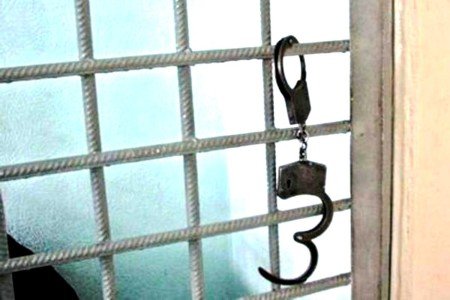 Mass searches and inspections are made in Crimea in recent months. People are checked for involvement in extremist activities. Some detained persons are taken to the Center for Countering Extremism. There were no such ideas in Ukrainian Crimea. Let’s try to figure out what extremism means according to Russian laws.
Mass searches and inspections are made in Crimea in recent months. People are checked for involvement in extremist activities. Some detained persons are taken to the Center for Countering Extremism. There were no such ideas in Ukrainian Crimea. Let’s try to figure out what extremism means according to Russian laws.
There is the Federal Law “On Countering the Extremism Activity” in Russia. This law doesn’t contain a clear definition of extremism. This concept is defined as a list of actions in the Article 1 of the Law. But this list of actions can be changed as one pleases. Since the Law has been adopted, it was amended twice. In addition, there are no clear definitions of “extremist materials” and “social group” in the articles of this Law. Law enforcers can also interpret it as they wish.
Therefore, court decisions in all such cases are based on so called “expertise”. But often experts in these cases are people, who don’t have enough knowledge to make such decisions.
For example, in Orenburg as many as 65 books withdrawn from a home library became under a ban by the court decision. With that, the court decision doesn’t say that some of them contain extremist statements. Texts of the books are regarded as ones oriented “to the formation of new life values, beliefs, behavioral stereotypes”. In fact, it is possible to ban any religious book according to this formulation.
However, the responsibility for extremist activity is quite grave in Russia. All its forms are legislated in the Penal and Administrative Codes of the RF.
Criminal liability is described in three articles of the Penal Code. It is a criminal intent to incite enmity (Art.282), calls for extremist activities (Art.208), public justification of terrorism (Art.205-2). Even a post in social networks can be recognized as an extremist activity in Russia. Such actions may result in up to 4 years’ imprisonment.
Besides, it is possible to be liable for dissemination of extremist literature. This doesn’t mean that you can’t store extremist materials. They can’t be mass distributed. But the law also doesn’t specify the criteria of “mass”.
Several people have been already fined for that in Crimea. One of them is a mosque’s imam, who didn’t know that the Arabic prayers became outlawed now.
The Administrative Code of the RF provides a fine of 1-3 thousand rubles or an arrest up to 15 days for the dissemination of extremist literature for private individuals. Public individuals can pay a maximum fine of 5 thousand rubles while a fine for incorporated persons can reach up to 100 thousand rubles.
Withdrawn books were an evidence of involvement in inciting sectarian or ethnic enmity in some criminals cases In Russia. In such a case, liability may be a fine or up to 15-20 years’ imprisonment.
According to Article 15 of the Law “On Countering the Extremism Activity”, an author of extremist materials is recognized as “a person involved in the extremist activity”.
There is the Federal List of Extremist Materials on the Ministry of Justice website allowing people to learn what materials they can’t to distribute in a mass scale. The Ministry makes this list by taking into account court decisions sent from throughout Russia.
Now this list contains more than 2,500 titles. This list often doesn’t contain a minimum of bibliographic data about the book. This means that it is impossible to say with certainty that a book from the list is the same book you hold in hands.
There are cases when a court forbids not a book but a file with a title containing just a couple of numbers that has extremist information in accordance with a court. The question that has to be answered is if you name a file on your computer in the same way, will it be also an extremist material?
There is virtually no analogue of the Russian list of banned literature in the International Law. The Law of the Russian Federation “On Countering the Extremism Activity” is often criticized by international human rights organizations.
In particular, experts say that it is necessary to add more precise definitions to this law and deprive district courts of the jurisdiction to carry out expert examination. All these suggestions are not legislated for the present. So Crimean people should adjust with the new reality.
Iryna Syedova and Crimean layers









